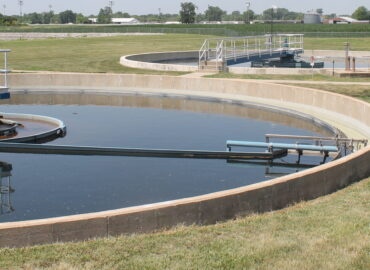SEDAC’s mission is to help our clients reduce their carbon footprint—through energy efficiency, good building design, renewable energy systems and more. The installation of renewable energy systems such as wind and solar has increased dramatically over the past few decades, in part because of net metering. However, a non-transparent lobby group is advocating for federal rule-making changes that would effectively end net metering, making it more expensive and difficult to install solar projects at homes, small businesses and public buildings, and hampering Illinois and US progress on climate action.
In 2001 the Federal Energy Regulatory Commission (FERC) made a ruling that has contributed to the steady growth of net metering programs. The principle is this: So long as a retail consumer consumes more electricity than they send back to the grid over a netting period (e.g., one month, six months, or one year), whatever electricity they send back is not a "sale for resale" and so is not subject to federal jurisdiction. Instead, it's just a "netting" of electricity flows reflected in the customers' utility bills.[1] In essence, net metering is a policy that allows states to compensate owners of solar panels and other distributed energy resources (DERs).
On April 14, 2020, the New England Ratepayers Association (NERA) filed a petition with FERC that seeks to “end net metering as we know it,” as one energy law expert tweeted. NERA claims to be the “voice of families and businesses served by regulated utilities,” but its lobbying and regulatory advocacy often align with the interests of investor-owned utilities and the fossil fuel industry.[2] NERA is a Concord, N.H.-based tax-exempt 501(c)(4) organization that is not required to disclose its donors.
Public Citizen, a nonpartisan nonprofit consumer advocacy organization founded in 1971, with 500,000 members has filed a motion asking FERC to dismiss NERA’s petition. Public Citizen claims NERA’s concealment of basic operating information and membership from FERC in its filings exploits the commission’s standards in a way that will allow future dark-money organizations to abuse the petition process.[3]
Laws and regulations on net metering vary state by state, but in total 41 states have some sort of net metering policy in place. States like Nevada and Maine serve as examples of states where repeals of net metering have led to economic disaster for solar.[4]
The Illinois Office of Attorney General, Illinois Municipal Electric Agency, Citizens Utility Board of Illinois, and the Illinois Commerce Commission have filed to intervene in the motion. They are joined by over 500 other environmental, regulatory, and governmental groups from across the country who are filing to intervene.
SEDAC will continue to follow this story and keep you informed on major developments.
[1] https://www.utilitydive.com/news/this-is-not-the-way-to-move-beyond-net-metering/580055/
[2] https://www.energyandpolicy.org/new-england-ratepayers-association/
[3] https://www.citizen.org/news/public-citizen-unmasks-suspect-ratepayer-group-aiming-to-disrupt-u-s-solar-policy/
[4] https://www.utilitydive.com/news/secretive-groups-petition-to-ferc-could-end-net-metering-as-we-know-it/576400/
Call to Action (from Vote Solar and Solar United Neighbors)
- As an organization: Consider this sign-on letter to FERC. This is not just for energy advocacy groups, but for non-Clean Jobs Coalition organizations as well.
- As an individual: Contact the IL EPA and request that they consider intervening in docket EL20-42. The ICC and the IL AG have already joined the fray. This sample email can help inform your outreach. You can also add your name to Save Solar’s action form to be included in future opportunities for public comment.
Minimum Offer Price Rule
In related news, in December of 2019, FERC announced an expanded minimum offer price rule (MOPR) that established a floor for state-subsidized renewable energy generation. These federal rules would drive up states’ costs to produce renewable energy and complicate their ability to reach climate goals by requiring costly fossil fuel generation to achieve capacity requirements. This puts the recent renewable energy policy successes in Illinois in jeopardy.
To prevent this outcome, Illinois has been evaluating plans to opt out of PJM’s capacity market. However, opting out will require legislation to enact. While it is undetermined if or when such legislation will pass, time is of the essence because if Illinois doesn’t act soon, there is a possibility the state could be locked into PJM’s capacity market through 2025, resulting in higher energy costs and more pollution for Illinois. Citizens Utility Board, the Illinois Clean Jobs Coalition, and other environmental groups are working to make this issue a priority in the next Illinois legislative session.





